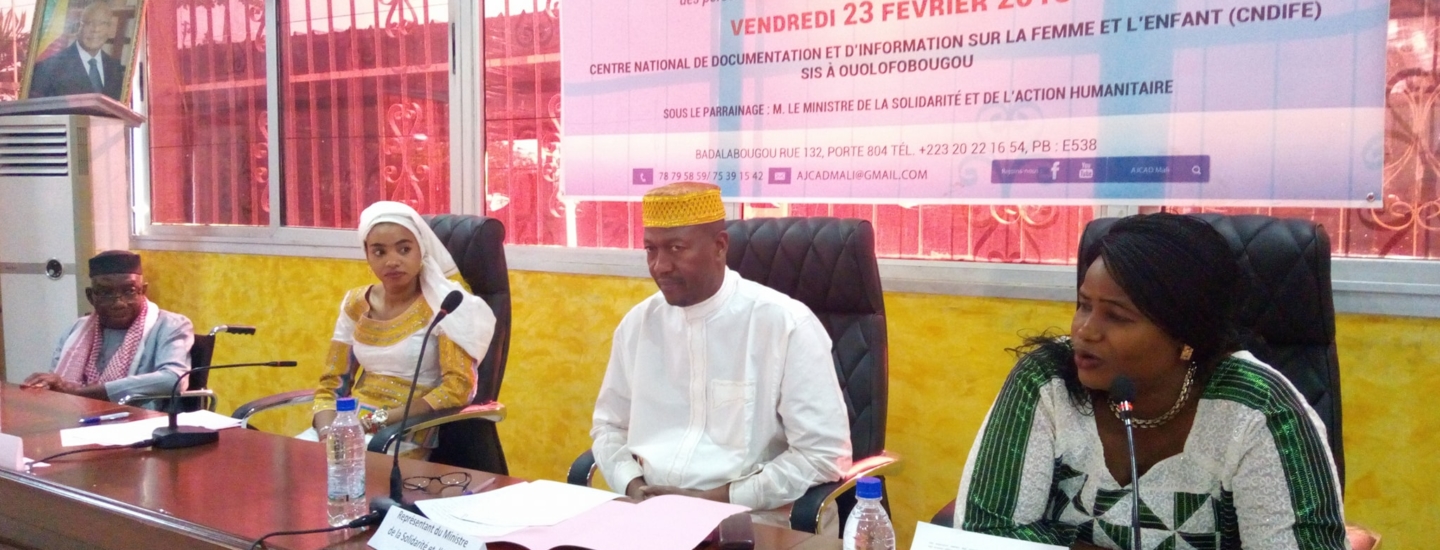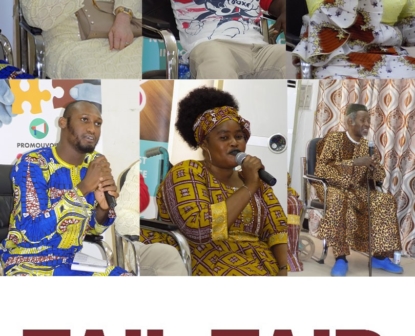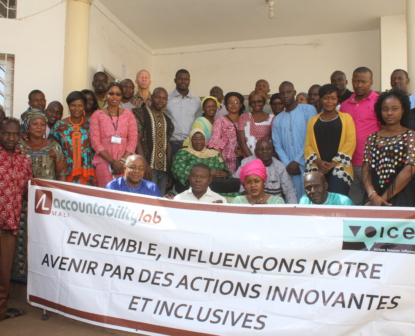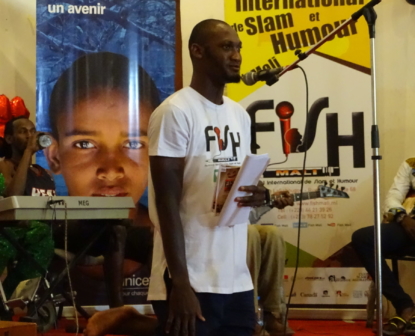Project
From Shadow to Light
-
Amount Funded
108,383 EUROProject Duration
15 Nov 2017 - 15 Jan 2019 -
-
Partners
DEVE Mali
-
The Association des Jeunes pour la Citoyenneté Active et la Démocratie (AJCAD) is a youth-led organisation registered in Mali in 2014. The association was created by youth who were convinced about the key role youth needs to play in development and human rights restoration in the fragile country. The founders are young activists who are strongly involved in several youth-related activities such as: promoting and advocating for reproductive health, good governance and human rights.
After multiple activities implemented with Oxfam-Novib as part of the programme My Rights My Voice, young people have discovered their responsibilities. In 2013 during the presidential and parliamentary elections AJCAD organised a space for discussions and debates among candidates. They also sensitised the Malian voters to register on the electoral lists and vote. And finally a youth manifesto was submitted to each candidate scrutinising their campaign programme on overall well-being.Based on the impact of these activities undertaken at community level, particularly on youth and women, AJCAD decided to standardise its approach in term of sustainability focusing on the well-being of people. Their goal is to bring about change in the following fields:
- Promoting leadership among youth;
- Participating in the development, monitoring and evaluation of youth policies in Mali;
- Strengthening the capacity of youth;
- Cultivating the spirit of citizenship among young people;
- Informing and educating the population on sexual and reproductive health;
- Promoting high quality education, active citizenship and good governance;
- Promoting youth human rights.
AJCAD is a member of the National Youth Movement Network and is directed by a woman. Keen to gender balance, AJCAD steering committee is composed of four women and four men.
-
Organisation
The Association des Jeunes pour la Citoyenneté Active et la Démocratie (AJCAD) is a youth-led organisation registered in Mali in 2014. The association was created by youth who were convinced about the key role youth needs to play in development and human rights restoration in the fragile country. The founders are young activists who are strongly involved in several youth-related activities such as: promoting and advocating for reproductive health, good governance and human rights.
After multiple activities implemented with Oxfam-Novib as part of the programme My Rights My Voice, young people have discovered their responsibilities. In 2013 during the presidential and parliamentary elections AJCAD organised a space for discussions and debates among candidates. They also sensitised the Malian voters to register on the electoral lists and vote. And finally a youth manifesto was submitted to each candidate scrutinising their campaign programme on overall well-being.Based on the impact of these activities undertaken at community level, particularly on youth and women, AJCAD decided to standardise its approach in term of sustainability focusing on the well-being of people. Their goal is to bring about change in the following fields:
- Promoting leadership among youth;
- Participating in the development, monitoring and evaluation of youth policies in Mali;
- Strengthening the capacity of youth;
- Cultivating the spirit of citizenship among young people;
- Informing and educating the population on sexual and reproductive health;
- Promoting high quality education, active citizenship and good governance;
- Promoting youth human rights.
AJCAD is a member of the National Youth Movement Network and is directed by a woman. Keen to gender balance, AJCAD steering committee is composed of four women and four men.
-
Project
Après avoir mené une enquête sur les personnes handicapées, le consortium AJCAD/DEVE s’est rendu compte qu’il y a deux principes qui sous-tendent leurs défis quotidiens. Selon eux, la discrimination et la stigmatisation peuvent être catégorisées comme suit:
- D’une part, les personnes vivant avec un handicap dans les zones rurales et urbaines sont encore perçues comme ayant une vie misérable et souffrant d’un manque d’intelligence en raison des idées pré conçues, des croyances populaires et culturelles.
- D’autre part, l’accès des personnes handicapées à divers services et à leurs droits universels est gravement limité.
AJCAD et son partenaire DEVE Mali ont constaté ce niveau de discrimination et ont décidé de prendre certaines mesures : un projet visant à promouvoir une image positive des personnes handicapées en documentant et en éliminant éventuellement les attaques et la discrimination auxquels elles sont exposées. Grâce à l’engagement auprès des média, aux arts et à la culture, le projet de l’ombre à la lumière est mis en œuvre dans les régions de Ségou, Sikasso et du district de Bamako. Le choix de ces régions s’explique non seulement par la présence de AJCAD et de DEVE dans les zones sélectionnées mais aussi par une forte vulnérabilité.
-
Après avoir mené une enquête sur les personnes handicapées, le consortium AJCAD/DEVE s’est rendu compte qu’il y a deux principes qui sous-tendent leurs défis quotidiens. Selon eux, la discrimination et la stigmatisation peuvent être catégorisées comme suit:
- D’une part, les personnes vivant avec un handicap dans les zones rurales et urbaines sont encore perçues comme ayant une vie misérable et souffrant d’un manque d’intelligence en raison des idées pré conçues, des croyances populaires et culturelles.
- D’autre part, l’accès des personnes handicapées à divers services et à leurs droits universels est gravement limité.
AJCAD et son partenaire DEVE Mali ont constaté ce niveau de discrimination et ont décidé de prendre certaines mesures : un projet visant à promouvoir une image positive des personnes handicapées en documentant et en éliminant éventuellement les attaques et la discrimination auxquels elles sont exposées. Grâce à l’engagement auprès des média, aux arts et à la culture, le projet de l’ombre à la lumière est mis en œuvre dans les régions de Ségou, Sikasso et du district de Bamako. Le choix de ces régions s’explique non seulement par la présence de AJCAD et de DEVE dans les zones sélectionnées mais aussi par une forte vulnérabilité.
-
News






